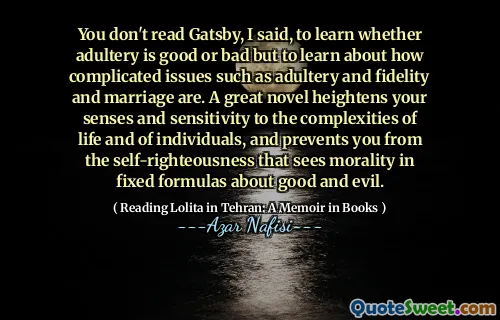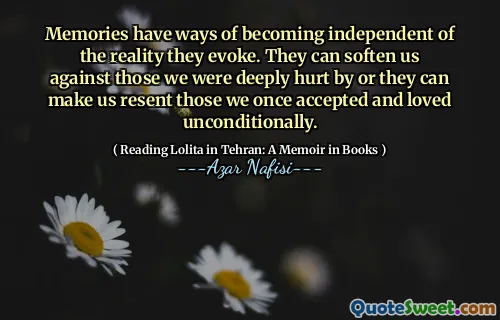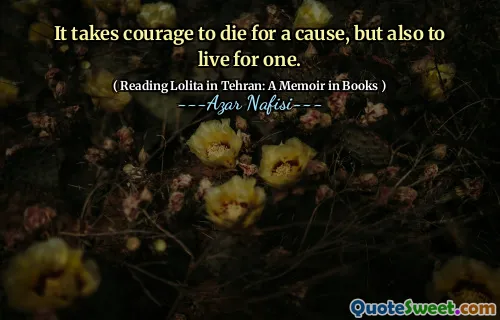
This was Nassrin, or to be honest, this was the two of us together: sharing the most intimate moments with a shrug, pretending they were not intimate. It wasn't courage that motivated this casual, impersonal manner of treating so much pain; it was a special brand of cowardice, a destructive defense mechanism, forcing others to listen to the most horrendous experiences and yet denying them the moment of empathy: don't feel sorry for me; nothing is too big for me to handle. This is nothing, nothing really.
📖 Azar Nafisi
Nassrin and the narrator portrayed their intimate experiences with a facade of nonchalance, masking the depth of their pain. This behavior stemmed not from bravery, but rather from a unique form of cowardice, serving as a defense mechanism. They presented their harrowing stories to others while simultaneously denying those listeners the opportunity to empathize, insisting that they were unbothered by their suffering.
By insisting that "nothing is too big" for them to handle, they trivialized their trauma, creating a barrier to genuine understanding and support. This approach highlights how people can cope with deep emotional pain by downplaying their struggles, ultimately preventing meaningful connections with others who might otherwise offer compassion.











